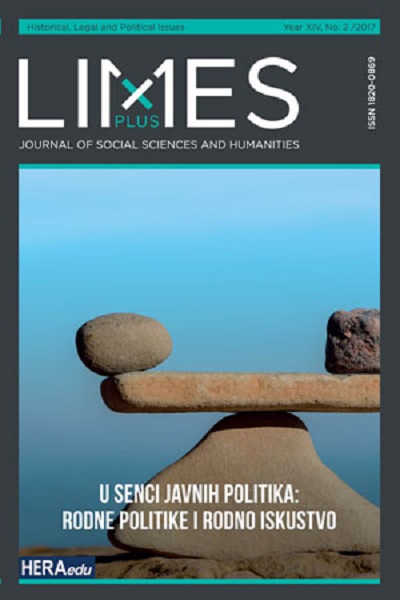Nova/stara rodna očekivanja – konformizam ili otpor patrijarhalnoj podeli rodnih uloga u porodici
New/Old Gender Expectations – Conformism or Criticism of the Dominant Patriarchal Paradigm in Family
Author(s): Selena Radović, Aleksandra MarkovićSubject(s): Gender Studies, Family and social welfare
Published by: HESPERIAedu
Keywords: gender expectations; gender roles; self-sacrificing micromatriarchate; (gender) transformativity; post-socialist transformation
Summary/Abstract: The basic idea of this paper is the analysis of the elements of gender asymmetry within marital – partner and family patterns. The exploration framework for our analysis will be the concept of self-sacrificing micro-matriarchate, and the theoretical construction of bifurcated social development. Following the dynamics of gender as the constitutive dimensions of the social structure, we will show in this paper how the segregation in marital – family life is carried out in the Serbian society according to the model of distinctive (male and female) gender roles. We will consider the coherence of the concept of a good mother and a good housewife, as unique gender roles and identities constructed through the prism of “normalized” and generally accepted social and gender expectations. The operationalization of gender expectations, or conformist pressure on women to be good mothers and good housewives, was realized through six open questions in the questionnaire. The quantification of the questions and their closure will be in accordance with the above theoretical assumptions, and through the analysis of the obtained answers about the degree of acceptance of gender expectations, we will rethink the “validity” of the concept of self-sacrificing micro-matriarchy in Serbia. However, as the questions contained in this survey do not allow precise operationalization of the concept of sacrificial micrometriarchy, here we will limit ourselves to the notion of sacrifice. For a deeper understanding of the self-priming micro-matriarch phenomena, the data analysis will be interpreted in accordance with the socio-demographic and class characteristics of respondents, as well as in accordance with their value orientations and practices. Bearing this in mind, the ultimate goal is to examine whether the recorded changes tend to the direction of a comprehensive transformation of family relationships, or suggest the pursuit of multiple aspects of retraditionalization, in accordance with fundamental social changes, which, because of their summarizing character, are often perceived as retrograde.
Journal: LIMESplus
- Issue Year: 2017
- Issue No: 2
- Page Range: 135-152
- Page Count: 18
- Language: Serbian

